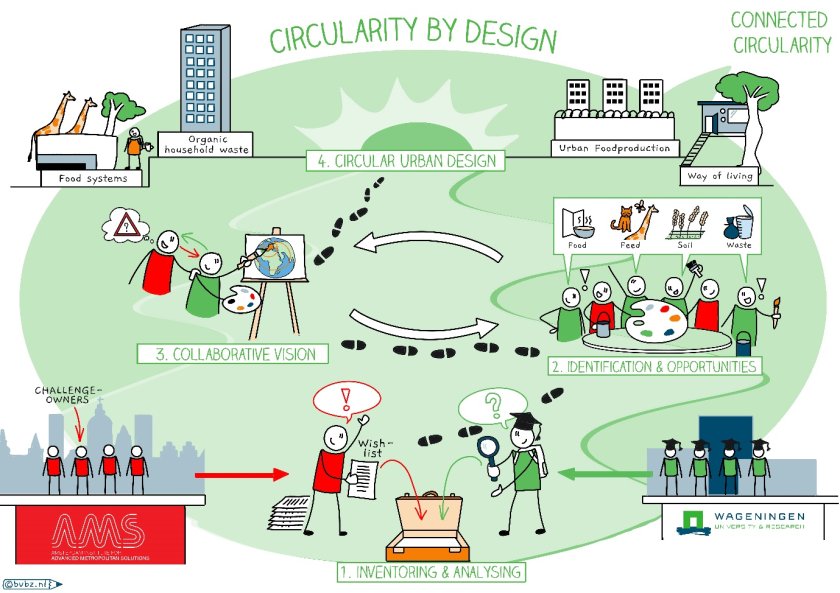
Project
Flagship 4: Circularity by Design
Within the Flagship project Circularity by Design, we apply (re)design principles to develop a sustainable agrifood system within the Amsterdam metropolitan region. We test and develop different instruments in various Living Labs, to achieve high-quality reuse of food (waste) streams. In this project, we collaborate with the AMS institute, 12 different disciplines within WUR, and several local partners in Amsterdam.
Expanding cities
Both the world population and the urban population are on the rise. Expectations indicate that approximately 75% of the world's inhabitants will live in urban areas in 2050. This burdens the current food system. A circular approach is increasingly needed to feed an ever-expanding city.
Project Circularity
Within the Flagship project Circularity by Design, we apply (re)design principles to develop a sustainable agrifood system within the Amsterdam metropolitan region. The critical question is how we can increase the value (upcycle) of waste streams (such as surplus, waste and byproducts) and reuse them in food chains and other processes. Creating a coherent chain in which both the final product and the waste streams are recycled requires an integrated approach.
To achieve this, we will take inventory of the existing streams, as well as of the technological and organisational advances needed to reach circularity. Within 4 Urban Challenges, instruments are developed and tested in living labs in collaboration with different local stakeholders and at different levels. This allows us to make decisions on issues such as repurposing and processing within different scenarios. The following challenges have been identified:
- Urban food systems
- Organic household waste
- Urban food production
- Cirular way of living

Circular design
In a joint effort between the AMS Institute, WUR expertise from 12 different fields and local stakeholders in Amsterdam, integrated circular designs are under development between 2019 and 2022. In these designs, we focus on multi-stakeholder dialogue and governance, nutrition and biomaterials, animal feed and safety, nutrients, soil and crops, and waste streams in an urban environment. We outline transition pathways for various promising scenarios, including economic, technical and social prerequisites.